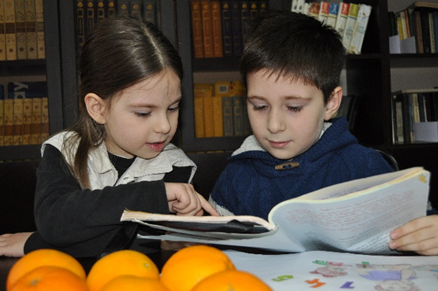
USAID’s Georgia Primary Education Project collaborates closely with the Ministry of Education and Science to transform the Georgian education system into a dynamic learner-centered model that produces students who are motivated to succeed
For the 2016-2017 school year, the Ministry of Education and Science (MES) of Georgia initiated a new project – “After School Learning” – to engage students in informal educational activities on topics outside of the standard curriculum. These activities are driven by students’ interests, and importantly for them, they do not include additional homework assignments or tests! Instead, students are offered a great opportunity for creativity and self-expression.
Tamar Malazonia, Head of the Programs’ Division at MES, describes the importance of the After School Learning project:
“It is crucial for school’s to be attractive, modern venues, which develop critical and independent thinking among the youth. It’s not right to close the school doors after lessons finish - After School Learning activities address this. This project will help students to display their unique abilities in various fields.”
USAID’s Georgia Primary Education Project (G-PriEd) worked to support schools in preparing proposals for MES to implement this new program. Specifically, G-PriEd offered resources to assist schools in preparing After School Book Clubs, based on its own model. Resources offered to teachers included two special video training sessions and materials, supplemented by a practical guide how to develop and run a successful book club.
Inga Samushia, a Georgian language teacher from Chkhoria School commented:
“G-PriEd once again gave us an idea for a new project, which can be modified and adjusted by any school to suit its needs… the G-PriEd ‘Book Club’ teaching materials are relevant and very useful. As always, G-PriEd’s assistance is timely and geared towards a successful result”.
In March 2017, G-PriEd posted the teaching materials for the book clubs, including a link to the video training sessions, on its Facebook page. Within a month, the post had been shared 239 times, reaching over 13,000 people, and G-PriEd received many follow-up questions from teachers about other resources that might be available.
Through initiatives like these book clubs, USAID through G-PriEd, is actively supporting the Georgian MES to transform its education system into a dynamic, learner-centered model that produces students who are motivated to succeed.







Comment
Make a general inquiry or suggest an improvement.